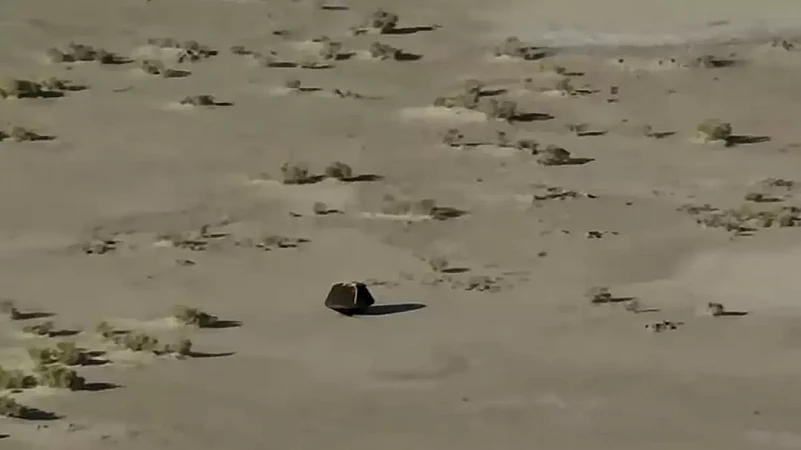Capping a seven-year-long mission spanning across billions of miles in space, a NASA capsule containing samples from an asteroid landed in the United States on Sunday. It is only the second time that a country has brought samples from an asteroid to Earth.
The Osiris-Rex spacecraft of NASA released the capsule from around 63,000 miles (100,000 kilometres) away from Earth. The capsule took around four hours to land.
The capsule landed at a US military site in the state of Utah at around 08:52 am local time. A team has been dispatched to recover the capsule.
After the capsule landed, NASA Administrator Bill Nelson said the "impossible became possible" with the landing.
"It brought something extraordinary – the largest asteroid sample ever received on Earth. It’s going to help scientists investigate planet formation. It’s going to improve our understanding of the asteroids that could possibly impact the earth and it will deepen our understanding of the origin of our solar system and its formation. This mission proves that NASA does big things, things that have inspired us, things that unite us. The mission continues with incredible science and analysis to come. But I want to thank you all, for everybody that made this Osiris-Rex mission possible...The impossible became possible," said Nelson, as per Guardian.
The capsule has brought back samples from an asteroid named Bennu, which is currently orbiting the Sun around 50 million miles (81 million kilometres) away from the Earth. The mission was launched in 2016 and it collected the samples around three years later. In all, the journey of the mission has been around 4 billion miles long (6.2 billion kilometres) so far.
After releasing the capsule, the Osiris-Rex spacecraft moved to the next phase of its mission in which it would collect samples from an asteroid named Apophis. The spacecraft is expected to reach this asteroid in 2029.
The capsule is expected to contain around 150-350 grams of samples from the asteroid Bennu, according to the Associated Press (AP).
The samples will be flown on Monday morning to a new lab at NASA's Johnson Space Center in Houston, according to AP. The facility is also home to hundreds of kilograms of rocks brought to Earth from the Moon.
The NASA has said that it would take a few weeks to assess the samples and a public show-and-tell of the samples is expected in October, according to AP.
So far, Japan is the only other country to similarly bring asteroid samples to the Earth.
This was the NASA's third attempt to bring back samples from the space. The first mission failed and the second brought back comet dust.
"The Genesis spacecraft dropped off bits of solar wind in 2004, but the samples were compromised when the parachute failed and the capsule slammed into the ground. The Stardust spacecraft successfully delivered comet dust in 2006," reported AP.
The scientists hope that the samples from the asteroid would offer insights into the formation of life on Earth and also into the possible impact in the future.
"Researchers hope this pristine space dirt will reveal clues about the birth of our solar system and the genesis of life on Earth... One theory is that small worlds like Bennu once seeded Earth with the prebiotic ingredients needed to form life," reported The New York Times.
The Bennu asteroid is expected to come very close to Earth, with the possibility to collide with the Earth, in 2182.






















